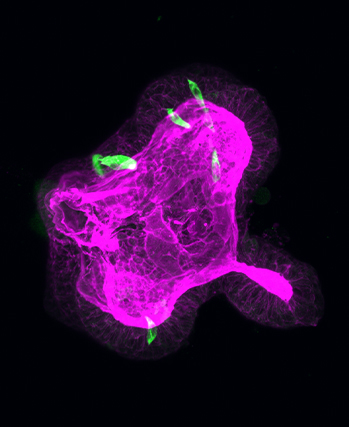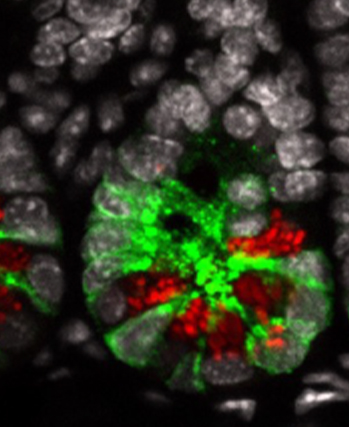This paper examines the response of the WNT signaling pathway involved in the development of colorectal cancer. WNT signaling controls the development and “stemness” of cells and the deregulation of this pathway has been shown to result in various types of cancers. Porcupine (PORCN) is a palmitoyltransferase and Wntless (WLS) is a dedicated WNT transport protein involved in WNT signaling. This study examines the response of this pathway to stresses found in the tumour microenvironment, including hypoxia, oxidative stress and endoplasmic reticulum stress.
Examination of effects of tumour microenvironment on WNT signaling
Research Area: Biochemistry, Cell Biology, Disease Biology
https://doi.org/10.1016/j.cellsig.2021.110047
Authors: Rowida Mohamed, Catherine Kennedy, William G.Willmore
Related Articles

Publication
BMP signaling in the intestinal epithelium drives a critical feedback loop to restrain IL-13-driven tuft cell hyperplasia
Although Helminth infections are prevalent throughout the world, they are particular a health...

Publication
LSD1 represses a neonatal/reparative gene program in adult intestinal epithelium
After birth, the epithelium that lines our gut transitions (or matures) so that it can deal...
Publication
Targeting mRNA binding proteins to respond to stress responses
The paper establishes the phosphorylation of heterogeneous nuclear ribonucleoprotein A1...